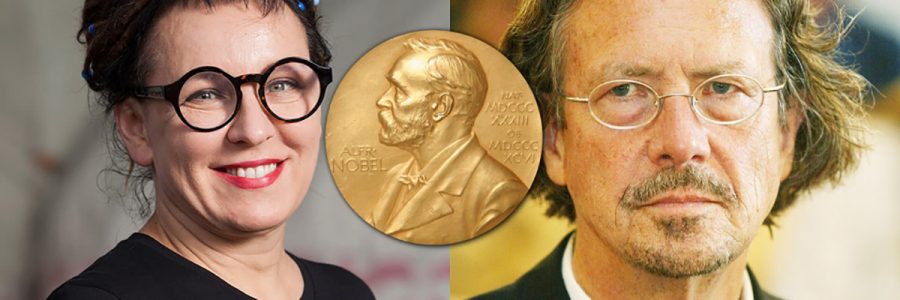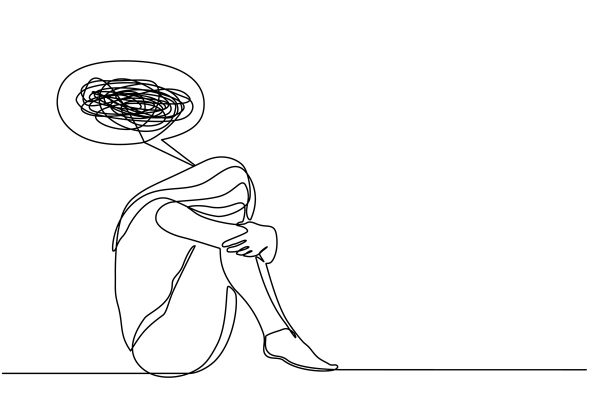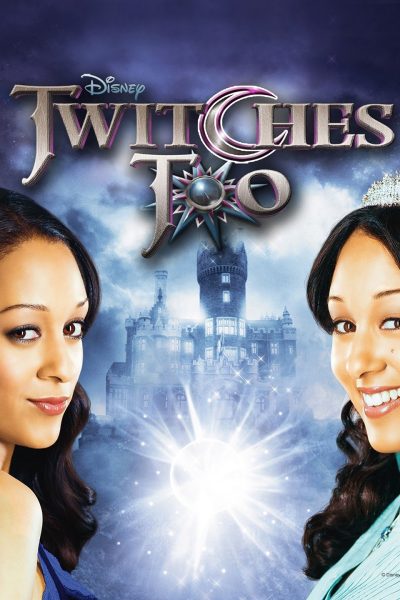Choice of recipients creates dispute over Nobel Prize for Literature
Swedish Academy creates controversy over whether the award can ignore a writer’s political engagements and only focus on the art
More stories from Rebecca Mennecke
Photo by Submitted
2018 and 2019 winners of the Nobel Prize for Literature, Olga Tokarczuk and Peter Handke.
The Swedish Academy recently announced the 2018 and 2019 laureates for the Nobel Prize in Literature after sexual assault allegations last year caused the academy to take a year off to reorganize and “gain the world’s trust,” according to The Washington Post.
It seems the academy failed to win its credibility back, as it awarded the 2019 prize to Peter Handke — a known Slobodan Milošević sympathizer — causing a huge backlash around the globe, since Milošević, the former president of Yugoslavia, went on trial for war crimes and genocide in Bosnia, Croatia and Kosovo, according to History.com.
Handke is known for “deeply ruminative, inwardly looking, and seemingly apolitical plays and novels,” according to Michael McDonald, with a “total absence of action.” His writing is “avant-garde,” according to The New York Times, and Handke described himself as a “conservative classical writer.” Beyond his actual writing, Handke explores “the periphery and specificity of human experience” with “linguistic ingenuity,” according to The Guardian.
It seems fair to say his writing deserved the prestigious award. But, thousands of writers around the globe have beautiful, thoughtful writing too. And they don’t indirectly support genocide.
Handke also disrespectfully called for the prize to be demolished in 2006 because of its “false canonization” of writing, according to The Washington Post.
This type of writing (or, what I, among many, like to call “art for art’s sake”) also goes against what Alfred Nobel outlined in his will. According to Nobel, the literature prize should be awarded to someone who “conferred the greatest benefit to humankind” as they “produced the most outstanding work in an idealistic direction.” It’s that last part — “an idealistic direction” — that makes it hard to accept Handke as a recipient. If his writing is art for art’s sake rather than art to make a point, then is it really moving in an “idealistic direction”?
The 2018 prize, less controversially, was awarded to Olga Tokarczuk, a Polish writer, activist and “flamboyantly dreadlocked vegetarian feminist” who focuses her work on “migration and cultural transitions,” according to The Guardian.
Tokarczuk’s writing differs from Handke’s greatly. Her 2018 novel, “Flights” (which won the 2018 Booker International prize) was a “literary antidote to cultural isolationism, xenophobia and nationalism” and “celebrates (Poland’s) cultural diversity,” according to The New York Times.
Tokarczuk explores “humanist themes” with a “playful, subversive streak” that pisses off Poland’s conservatives, according to The Washington Post. She represents a more progressive part of society, as she includes feminist perspectives in her writing.She’s deserving of the award for not only her writing, but for her overarching themes and advocacy in her writing. Not to mention how it’s an enormous victory that a woman won the prize. Since its beginning in 1901, only 15 women have been awarded the prize for literature out of 116 laureates, according to The New York Times.
Women have won 49 out of 923 total Nobel Peace Prizes. That is about one in every 20, according to The Quartz. This is more than a little alarming.
However, Tokarczuk didn’t seem phased by Handke’s awardation — something that should be concerning for an activist.
“I am also very happy that Peter Handke has received the award with me, I value him very much,” Tokarczuk said, according to The New York Times. “It’s great that the Swedish Academy appreciated literature from the central part of Europe. I am glad that we are still holding on.”
Though Handke’s literary merit may be worth notable recognition, the awardation of such a prestigious prize requires accounting for political shortcomings, specifically when those “shortcomings” involve denying the genocide of a major population and reflecting this ignorance through the total absence of politics in literary work. Anyone can write something beautifully. It takes a true writer to combine politicism and beauty seamlessly.
“We are dumbfounded by the selection of a writer who has used his public voice to undercut historical truth and offer public succor to perpetrators of genocide,” Jennifer Egan, the president of PEN America said in a statement.
The award should have gone to someone who advocates for peace, not someone who sympathizes with genocide and war. Literature advocates for change. It develops and molds societies as we know it.
By encouraging poor global citizenship in writing, we’re advocating for poor writing in general. After all, it is the Nobel Peace Prize. It also should have gone to someone who writes with politics in mind, not someone who is so privileged that considering politics in writing is deemed unnecessary.
As McDonald writes in The American Scholar, “Literature is many things, but it wouldn’t be worthy of our attention if it didn’t have something to do with human psychology — from which Handke clearly wishes to escape. Literature that deals exclusively with the external forms of life ends up being repetitive and trivial — which is what Handke’s writing often is.”
The choice in award recipients also represents the academy’s inability to look beyond white European recipients, according to Electric Literature. As a result, they’re skewing what global society views as “great” literature. It is unacceptable that “great” is equated with “European” and “white” and — more often than not — “male.”
The 18 members of The Swedish Academy have “an almost perverse tendency to get things wrong, ” according to Ron Charles of The Washington Post. I couldn’t agree more.
Among those believed to be deserving of winning the award include: Ngugi wa Thiong’o, Maryse Condé, Yan Lianke, Can Zue, Scholastique Mukasonga, Elena Poniatowska, Annie Ernaux and Margaret Atwood, according to numerous news organizations.
Any one of these individuals would have been phenomenal, qualified candidates.
It’s about time that the academy awards more diverse individuals, reflecting the fact that every culture has great literature.
“Let’s set aside the ridiculous presumption that each year the Nobel Prize in literature goes to ‘the greatest writer in the world,’” Charles wrote. “Given the complications of translation, the influences of cultural bias and the limits of any small group’s knowledge, the distinction of ‘best’ is impossible to make with any defensible certainty. The prize is always political, always a compromise, always a statement of values.”
Mennecke can be reached at [email protected].










